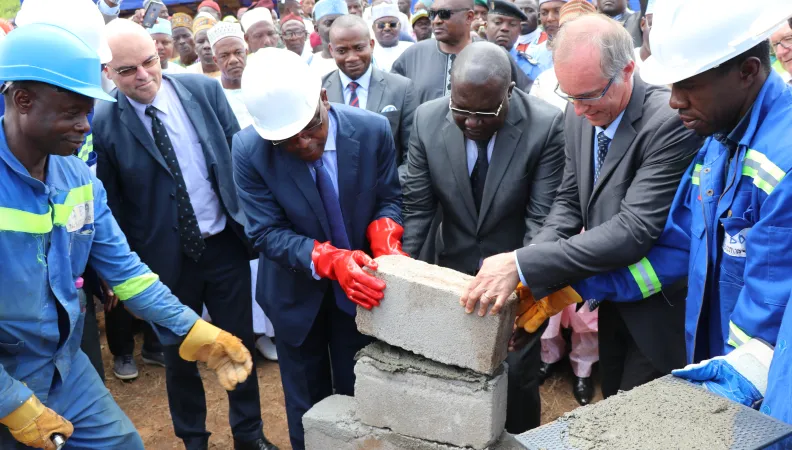Share the page
Kick-starting a private investment dynamic for low-power renewables in Cameroon
Project


-
Project start date
-
Status
In progress
-
Estimated date of project termination
-
-
Project financing date
-
-
Financing duration
-
5 years (20 years of operation)
-
Type of program
-
FFEM
-
Global financing amount
-
5 712 230 €
-
FFEM financing amount
-
500 000 €
-
Project lead member institution(s)
-
French Ministry of Economy and Finance
-
Country and region
-
Central Africa, Cameroon
-
Location
-
Mbakaou
-
Type of financing
-
Grant
-
Partners
-
BDEAC, Energy Facility of the European Union
-
Beneficiaries
-
IED INVEST
-
Type of beneficiary
-
private sector



Despite the best intentions of the public authorities for several years, to date no private investment project in low-power renewable energies has seen light of day in Cameroon. In supporting the creation of the first private hydroelectric plant under 5 MW, the FFEM is contributing to opening up the path to the energy transition in the country.
Context
Since 1998, the Cameroon authorities have wanted to attract private investment into the electrical power sector. The national grid concession has been in the hands of a private operator since 2001 (Eneo Cameroun since 2014). In parallel, the Cameroon State launched the Rural Electrification Agency (AER) to support private, council or association operators interested in the rural electrification sector, and a Rural Energy Fund (REF) to provide them with financial support. However, in the absence of an incentive framework, no private operator has ventured into the rural electrification sub-sector, or into small-scale independent production based on renewable energy. In supporting the project developed by IED-Invest, the FFEM is helping to unlock the sector for smaller independent power producers (IPP) across the country.
Description
The project has three components:
- Delivering the necessary infrastructure (small hydropower plant and the associated electrical network) to establish the first independent renewable energy-based electricity production unit in Cameroon (1.4 MW hydro-electric).
- Creating reproducible IPP models for future projects in Cameroon’s rural areas to be delivered by a private sector investor within the existing regulatory framework.
- Extending the project’s social impacts, by distributing effective energy-efficient equipment to facilitate social activities and/or generate income, through measures to support low-income families.
Impacts
- Provision of renewable electricity for 40,000 inhabitants in rural areas
- Reduction in carbon emissions of 3,200 tonnes in the first year rising to 8,500 in the last year of the contract’s operation (20 years)
- €11.9M profit over the 20 years of operation, roughly double the investment costs of the project
- Creation of more than 20,000 work-days over the infrastructure realisation project
- Creation of around a dozen employee positions on site, an engineering and management position at Yaoundé during the operational phase
Exemplary and innovative characteristic
This project aligns itself well with the dynamic instituted by the Cameroon public authorities. It is the first to deliver on political intent following the 1998 law encouraging private investment in electrical infrastructure based on renewable energy. This heralds a new sustainable trend for the economy and reinforces the country’s energy independence. The project allows the authorities and specialist institutions (ARSEL, AER) to finally begin to unlock the IPP sector.
The hydroelectric plant is intended to be replicated elsewhere and sends a strong signal to Cameroon developers, demonstrating the interest in, and viability of, this sustainable model.
Sustainable Development Goals
ODD9 Industry, innovation and infrastructure

ODD12 Responsible consumption and production

ODD13 Climate action



